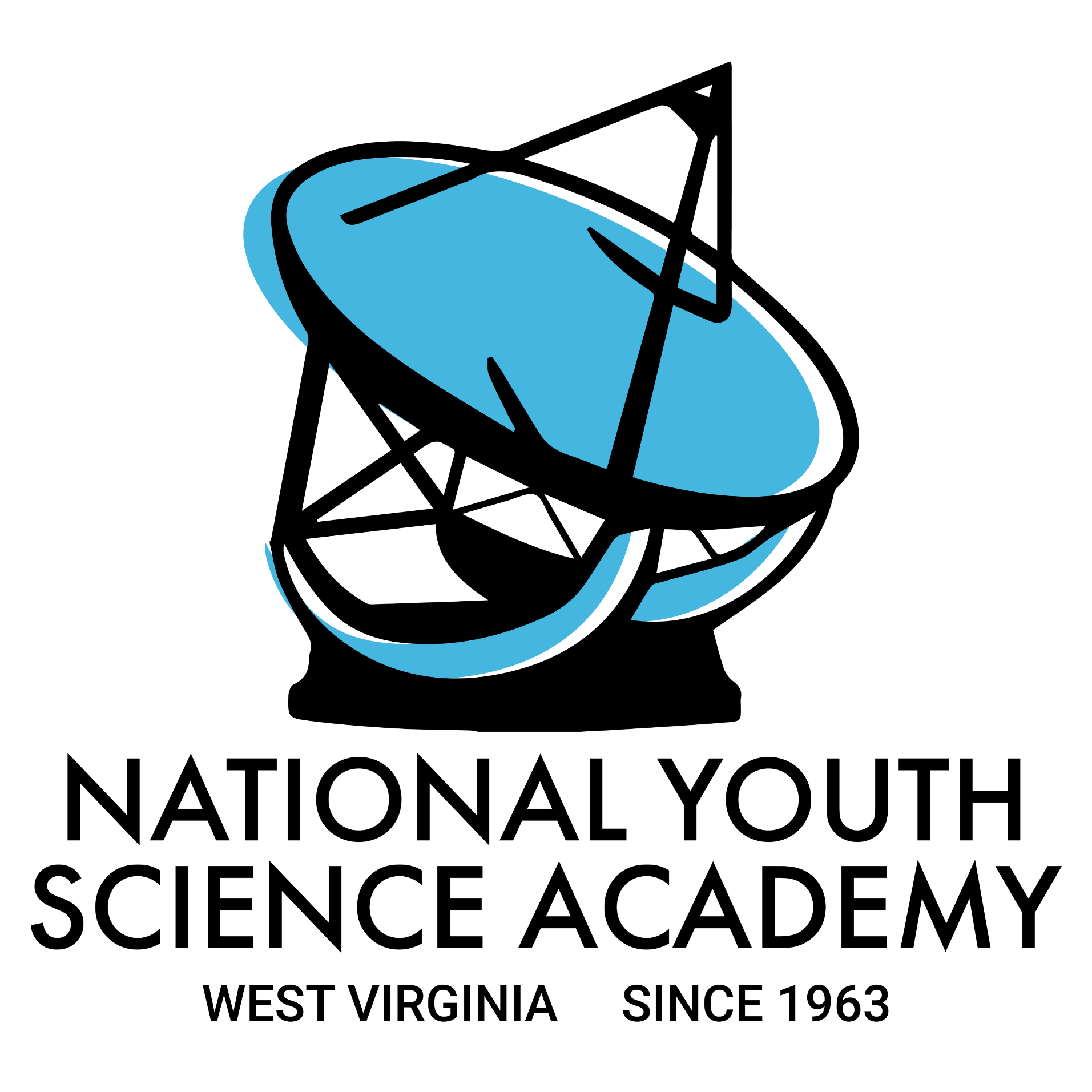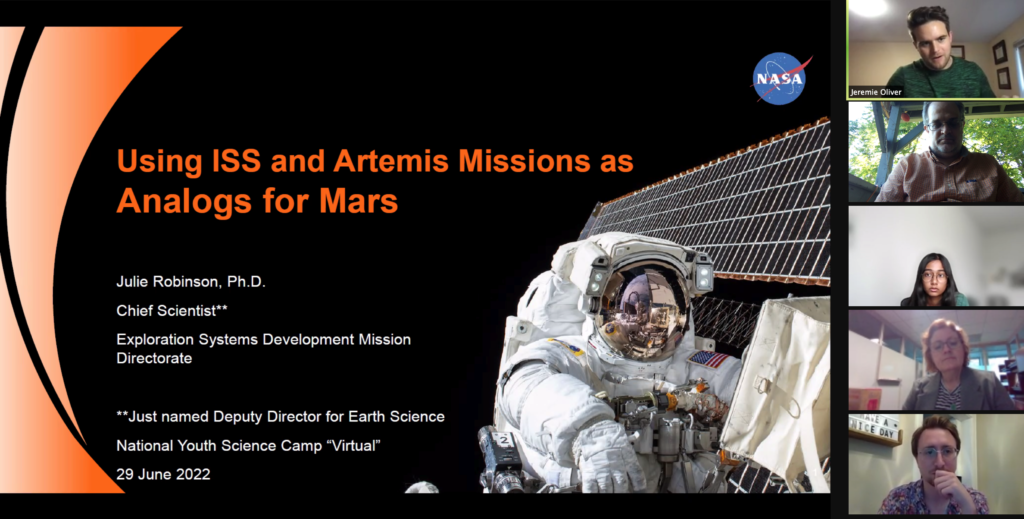Spaceflight’s hazards to humans present in varying degrees: altered gravity, isolation and confinement, distance from Earth, radiation, and hostile closed environments. Using proxy environments scientists can replicate the hazards humans may face on Mars. If we do it right, we can use the missions to improve readiness and get to Mars more quickly and more safely.
Dr. Julie Robinson, Chief Scientist and Manager for Science and Technology Utilization in Human Exploration and Operations, NASA, delivered a keynote lecture to the 2022 virtual National Youth Science Camp (NYSCamp) entitled “Preparing for Human Missions to Mars: Strategy for using ISS and Artemis as Analogs.”
“In 10-15 years we may be able to put equipment in orbit that we need for the trip,” Dr. Robinson explained. “It is critical to use any knowledge gained as practice to go to Mars in the 2030s.”
The International Space Station (ISS), Artemis and Mars are all connected as a single human spaceflight challenge. “Young people this [delegate] age are the ‘Artemis generation’, the first people to make it to the moon and to Mars,” said Dr. Robinson.
Dr. Robinson viewed the opportunity to address the NYSCamp’s global delegates as a valuable one to bolster the rising generation of scientists and innovators.
“When I graduated from high school, I hadn’t been many places yet, so [when I attended NYSCamp] it was a great opportunity to solidify myself as a scientist and who I was as a person. The relationships I made have been crucial for me in my life,” Dr. Robinson said.
About the National Youth Science Camp: Hosted in Monongahela National Forest in West Virginia since 1963, the National Youth Science Camp (NYSCamp) is a residential science, technology, engineering, and mathematics (STEM) program designed to honor and challenge some of the nation’s rising leaders and provide them with opportunities to engage with STEM professionals and participate in exciting outdoor activities. Typically, two delegates are selected to attend camp from each state and the District of Columbia. In partnership with the U.S. State Department, we also host international delegates. Past countries represented include Argentina, Bolivia, Brazil, Canada, Chile, Costa Rica, Ecuador, Germany, Japan, Mexico, and Trinidad and Tobago. Housing, meals, transportation, and supplies are provided to participants at no cost. In response to the COVID-19 pandemic, now for the 3rd consecutive year, the 2022 National Youth Science Camp (NYSCamp) is an entirely virtual experience.

